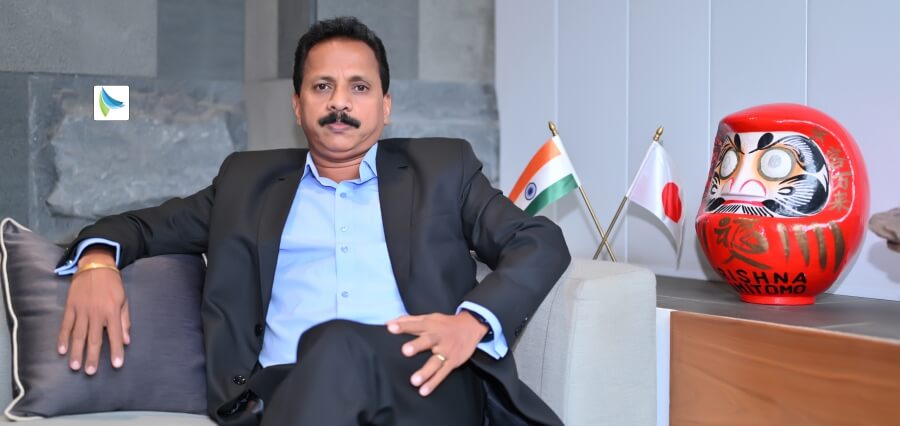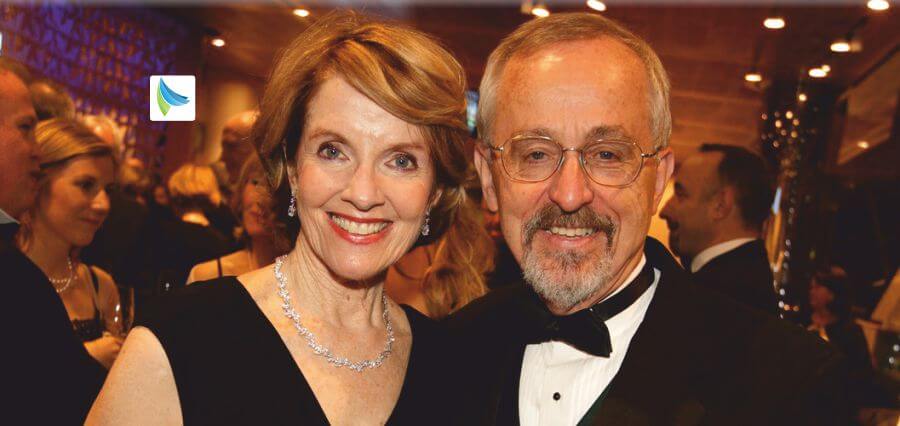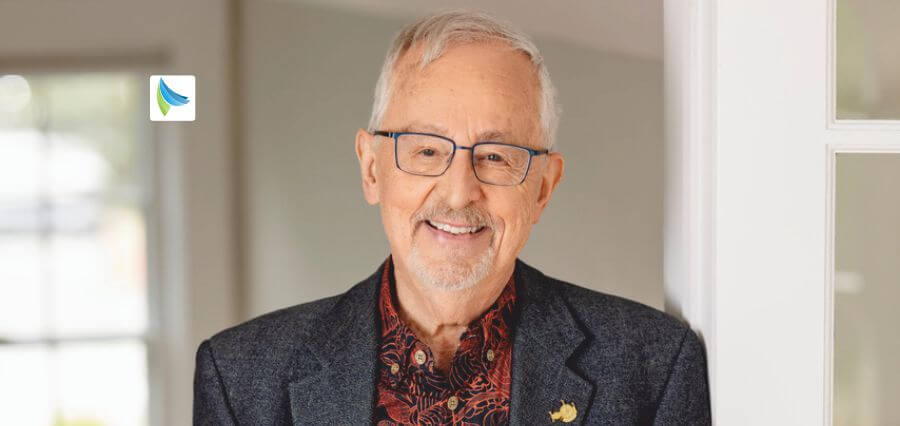In a business environment often driven by speed and short-term gains, Justin Delfino takes a different approach focused on strategic growth, innovation, and sustainable impact. For him, success is not about quick wins but building strong networks, driving meaningful advancements, and delivering lasting value. With a career spanning intellectual property, R&D, and the evolution of digital industries, Justin has seen firsthand that adaptability and long-term thinking drive real progress. His leadership style is collaborative, ensuring that each stage of a project or initiative contributes to a broader, more durable outcome. By fostering a culture of continuous learning and informed decision-making, he has helped organisations navigate change, refine their strategies, and scale effectively.
Justin views leadership as more than achieving key milestones—it’s about making decisions that stand the test of time, investing in the right opportunities, and shaping industries rather than just individual careers. At Insights Success, we spoke with Justin to understand his leadership philosophy, problem-solving approach, and strategies to turn challenges into opportunities. Here’s what he shared.
Share an overview of your background, including your early years, education, career trajectory, key challenges, and turning points that shaped your leadership path.
I was fascinated by international business from an early age. At seven years old, after one of my neighbours, whom I was very impressed by, said that he was studying international business, that was it. I started telling everyone that “when I grow up,” I want to be an international businessman, unaware of what that meant. That ambition, however, shaped my decisions and career trajectory.
I grew up in Buckinghamshire, United Kingdom. I attended local state schools during the 90s, a time of significant change, especially with the early stages of the internet and the dot-com boom. I followed a conventional academic path—completing my GCSEs and A-levels and earning a Hons degree in international business. Initially, I considered an academic career and was accepted into a PhD program focusing on organizational buying behavior. However, life had other plans. When I learned my girlfriend was expecting a child, I pivoted into the professional world and embarked on a corporate career, starting in sales.
My professional journey began in sales and account management with industry leaders like A.C. Nielsen (now Nielsen), IMS Health (now IQVIA) and LexisNexis. Over time, my role expanded beyond sales to encompass marketing, strategy, and commercial leadership. Recognizing the need to deepen my business acumen, I undertook an Executive MBA, which honed my understanding of corporate finance, global operations, and strategic management. This holistic perspective prepared me for my role as Executive Vice President at Evalueserve, where I lead the Intellectual Property and R&D division.
My journey underscores the importance of adaptability. Plans often shift due to unforeseen circumstances, but the key is to pivot strategically, embrace learning opportunities, and remain focused on long-term goals. Leadership is not about rigid adherence to a single path but rather the ability to navigate complexity while staying true to core aspirations.
What inspired you to enter your industry? How did your journey begin, and what key opportunities or challenges defined its growth?
My move into the IP and R&D sector was serendipitous while at LexisNexis. Before joining LexisNexis, I worked at IQVIA (a life sciences research organization), where intellectual property was a critical data point, and an understanding of IP was required. When LexisNexis acquired an IP product company in 2008, my background in life sciences made me a natural fit for the transition into the IP space.
Working in IP and R&D means having a direct line of sight into emerging technologies and the future of various sectors. It allows us to support companies in protecting breakthrough inventions, optimising their patent portfolios, and leveraging IP as a strategic asset. However, this also comes with challenges as IP landscapes grow more complex and litigation risks increase.
The key to thriving in this space is embracing technology asan enabler. AI and advanced analytics transform how we conduct research, forecast trends, and advise clients. Those who view these advancements as threats risk obsolescence, while those who leverage them gain a strategic edge. The future of IP and R&D is not just about data—it’s about insights and the ability to translate complexity into a competitive advantage.
How do you navigate the complexities of your profession while ensuring work-life balance? Share your strategies for resilience, adaptability, and leading effectively in high-stakes environments.
Leadership in high-stakes environments starts with clarity and realism. Setting expectations—both personally and professionally—is critical. I am transparent with my team about what’s achievable and with my family about thedemands of my role. I don’t make commitments I can’t honour, and that honesty fosters trust in both spheres. I also challenge the conventional notion of “work-life balance.” Instead of seeing work and life as opposing forces, I view them as interconnected. When your professional and personal values align, work doesn’t feel like a separate entity that needs to be “balanced.” Instead, it becomes an integrated part of a fulfilling life.
Resilience and adaptability are essential. High-stakes environments often involve uncertainty, disruption, and rapid decision-making. Effective leadership is defined by the ability to remain composed, absorb complexity, and make informed yet decisive choices. Emotional intelligence plays a crucial role here. Leaders who panic, micromanage, or overcompensate in times of uncertainty create instability rather than progress.
Another core strategy is effectively leveraging people. No leader can—or should—do everything alone. Surrounding yourself with high-calibre individuals, empowering them with autonomy, and fostering a culture of accountability drives sustainable success. Leaders who try to be the sole problem-solvers often limit their organisation’s potential.
Ultimately, leadership is about confidently navigating uncertainty, ensuring strategic alignment, and making decisions that propel the organisation forward. It’s not about perfection—it’s about progress and maintaining momentum in the face of complexity.
What drives your approach to business and leadership? Describe your decision-making philosophy, innovation strategies, and risk-taking appetite.
Leadership is, at its core, about balancing strategic vision with operational execution. My philosophy centres around three key principles: foresight, adaptability, and empowerment.
Foresight is essential because executive leadership isn’t about managing the present but preparing for the future. The role of an executive is not just to ensure stability today but to anticipate and navigate shifts that will impact the business in the next three to five years. In the IP and R&D space, that means understanding emerging technologies, evolving regulatory landscapes, and market disruptions before they fully materialise.
Adaptability is equally critical. The business environment is increasingly unpredictable, and rigid decision-making is a liability. Leadership must be comfortable pivoting when circumstances change. That doesn’t mean being reactive—proactively identifying when course corrections are necessary and implementing them precisely.
One of the most important lessons I’ve learned is the importance of being the change and leading the change. In our industry, AI has been a game-changer Instead of resisting it, we embraced it as an opportunity to enhance efficiency and focus on higher-value work, per the examples I previously shared. By being the change and leading the change, we’ve positioned ourselves as innovators in the IP and R&D space. This mindset is crucial for any leader—don’t wait for change to happen; be the one driving it.
Empowerment is the foundation of strong leadership. The best leaders don’t seek to be the most intelligent person in the room—they build teams of exceptional people and give them the autonomy to excel. Leadership isn’t about controlling every decision but enabling others to make the right decisions within a clear strategic framework. When it comes to communication, I believe in leading with positivity. For example, when discussing AI, some focus on the fact that it only achieves 70% accuracy. Instead of framing this as a negative, I flip the narrative: “Isn’t it amazing that AI gives you 70% of your time back?” This positive approach helps people see opportunities rather than obstacles. Effective communication involves storytelling—tailoring your message to the audience and leading with optimism.
When it comes to decision-making, I emphasise a data driven, forward-looking approach. encourage my team to frame challenges as opportunities. Take AI, for instance. Some view it as a disruptor threatening traditional roles, but I see it as a force multiplier enabling higher-value work. It’s all about perspective—leaders who embrace change will lead organisations that thrive, while those who resist it will struggle to remain relevant.
Effective leadership requires a balance of pragmatism and vision. It’s about making informed choices today while building the foundation for long-term success. Leaders who focus solely on immediate problems without considering future implications risk making decisions that lack sustainability. Conversely, those who think strategically but fail to execute on the ground will be outpaced by competitors who do both. Success lies in harmonising vision with action.
What motivates you daily? Share insights into your core values, mission, and the more significant impact you aim to create through your work.
Success is my motivation. Success has two fundamental pillars: building a high-growth, sustainable business and investing in people.
My core motivation stems from the ability to create meaningful impact within my organisation and the broader industry.
I am deeply driven by intellectual curiosity. Working in IP and R&D provides the opportunity to witness technological innovation firsthand. I am excited to see how ideas transform into market-shaping innovations.
Equally important is people’s development. Authentic leadership is not about personal achievements but about empowering those around you. I take great pride in mentoring and guiding teams, fostering a learning and continuous improvement culture. Watching individuals grow into leadership roles and excel in their careers is one of the most rewarding aspects of my work.
Additionally, I believe in the power of long-term thinking. Leadership is about legacy—the ability to create systems, structures, and cultures that endure beyond one’s tenure. I am motivated by the challenge of shaping profitable and resilient organisations in the face of future industry shifts.
Finally, purpose matters. Business is not just about revenue and growth but about creating lasting value. Through technological advancements, process optimisation, or client-driven innovation, I aim to contribute to something larger than myself.
How have significant disruptions (e.g., economic downturns, technological advancements, or industry shifts) influenced your business or profession? What strategies have you employed to turn challenges into opportunities?
Rapid technological evolution, economic fluctuations, and shifts in regulatory frameworks have reshaped the IP and R&D landscape. Disruptions are inevitable, but the ability to anticipate and respond effectively differentiates market leaders from those struggling to keep pace.
The two main disruptors in recent years are AI and the COVID-19 pandemic. During COVID-19, traditional faceto- face selling became impossible, and we had to quickly adapt to a digital-first approach. This approach helped us maintain client relationships during the pandemic and positioned us as a more agile and innovative partner in the eyes of our clients.
Regarding the AI possibilities, while many initially viewed AI as a threat to traditional IP research and analytics, I saw an opportunity to enhance efficiency and deepen insights.
At Evalueserve, we embraced AI-powered tools to automate low-value tasks, allowing our experts to focus on strategic, high-impact work. Rather than resisting change, we
integrated AI to strengthen our capabilities and deliver more value to clients.
Regulatory changes have been another significant factor, particularly in global patent law and trade secret protections. Staying ahead of these shifts requires not just compliance but strategic foresight.
We have positioned ourselves as a trusted partner in navigating complexity by continuously monitoring legal landscapes and advising clients on adapting. Our IP advisory services help clients stay compliant while maximising the value of their IP portfolios, including trade secrets.
Whether they need help navigating changes in patent law or understanding the implications of new regulations, we provide the insights and guidance our clients need to succeed in a rapidly changing IP landscape.
What key strengths have contributed to your success? Have you overcome challenges or weaknesses that offer valuable lessons for aspiring leaders?
Success is not solely the result of expertise or intelligence—it is built on resilience, adaptability, and the ability to learn from failure. One of my greatest strengths is my willingness to embrace change and seek growth opportunities, even in challenging circumstances.
One of the most formative experiences in my career was my first job working in my dad’s restaurant. I started at the bottom—washing pots, pans, and dishes. Over time, I moved to food prep, which involved less glamorous tasks like meat & vegetable preparation.
Eventually, I made it to the front of the house, welcoming guests and seating them, and finally became a barman; you learn a lot as a barman about business! While I hated some jobs, I showed up daily, even when I didn’t feel like it or when my friends were out having fun.
That experience taught me the importance of resilience, showing up, and understanding every part of a business—from the back end to the front end.
Resilience has been critical in navigating career transitions and industry shifts. From my early days in sales to leading a global IP and R&D division, every stage of my career has required me to evolve. The ability to stay focused, even in uncertain conditions, has been essential.
One of the most important lessons I’ve learned is the power of positivity. It takes nothing to be polite or positive, but its impact on your team and your ability to lead is immense. Being approachable, personable, and inspirational is key to effective leadership. People won’t follow someone hostile or unapproachable. At the same time, you can’t be everyone’s friend—you must balance being genuine and maintaining authority.
However, do not overjudge yourself. Ultimately, the best leaders continuously learn and prioritise curiosity, reflection, and improvement—this sets apart those who lead from those who follow.
List your key milestones, awards, and recognitions highlighting your impact in your industry.
I have been fortunate to contribute to transformative projects and be recognised for thought leadership in the IP and R&D space. Some of my most notable achievements include:
- Being part of the founding team that launched LexisNexis’ global IP business, shaping its strategic direction and positioning it as a leading industry provider.
- Led the Evalueserve IP & R&D division through sustained double-digit growth, optimising business performance and improving profitability. Developing and launching Searchstream, a digital ordering platform that revolutionised how the market accesses IP services, increasing operational efficiency and customer satisfaction.
- Recognition in the IAM Strategy 300 & IAM Global IP Leaders, where I have been listed among the world’s top 300 IP strategists for multiple consecutive years, reinforces my contributions to the industry’s innovation and best practices.
- Successfully expanding Evalueserve’s footprint in AIpowered IP and R&D analytics, positioning the company as a leader in technology-driven innovation intelligence.
- Driving initiatives integrating AI and automation into core IP services, increasing speed, accuracy, and scalability.
I am very proud of my family’s achievements. Being a father to two daughters, a stepson, and a husband to a fantastic wife has been one of the most rewarding aspects of my life.
Having a tremendous partner in my family makes all the difference—it brings joy, balance, and support to life at home and beyond. True success is not measured only by awards or milestones—it is defined by the lasting impact you leave on people, businesses, and the industry.
What guidance would you offer to individuals aspiring to leadership roles? Share actionable insights on leadership, innovation, and long-term success.
Leadership is not about titles but influence, impact, and continuous learning. For those aspiring to leadership, here are my key insights;
- Invest in Learning: The business world evolves rapidly, and staying ahead requires continuous self education. Formal education is essential, but hands-on experience, mentorship, and industry insights are equally critical. Read, listen, and engage with thought leaders.
- Develop a Strategic Mindset: Leaders solve today’s problems and anticipate future challenges. Make decisions that create long-term value rather than short-term fixes. Train yourself to think beyond immediate results and focus on sustainable impact.
- Embrace Change, Do Not Resist It: Every industry experiences disruption. Those who fear change fall behind; those who embrace it lead. Whether technology, market shifts, or evolving customer needs, be the leader who drives transformation.
- Learn to Delegate: Leadership is not about doing everything yourself. Your success is measured by your ability to empower and elevate others. Trust your team and build a culture of accountability.
- Master the Art of Communication: Clear and compelling communication is essential for engaging clients, leading teams, and presenting a vision to stakeholders. Influence comes not just from great ideas but also from how effectively those ideas are conveyed.
- Stay Resilient: Setbacks and failures are inevitable. The best learn from failure, adjust their approach, and keep moving forward. Above all, it’s crucial to love what you do. If you’re not passionate about your work, sustaining the energy and commitment needed to succeed won’t be possible long term. So, choose a path that excites you.
A concise message for our readers—your guiding principles for growth, professional excellence, and personal fulfilment.
“Don’t count the time. Make the time count.” By Muhammad Ali. Maximising impact should be the goal every single day. Success is built on consistency, continuous learning, and the ability to evolve. Stay curious, stay adaptable, and always lead with purpose.
This mantra gently guides me in both my personal and professional life. Whether I’m spending quality time with my family or making thoughtful decisions at work, I try to bring intention and meaning to each moment. I’m also deeply influenced by the book Nudge by Richard Thaler and Cass Sunstein, which highlights how small, thoughtful shifts—nudges—can lead to meaningful change. I try to carry this approach with me each day, embracing continuous improvement through simple, positive steps.
Connect with Justin Delfifino














